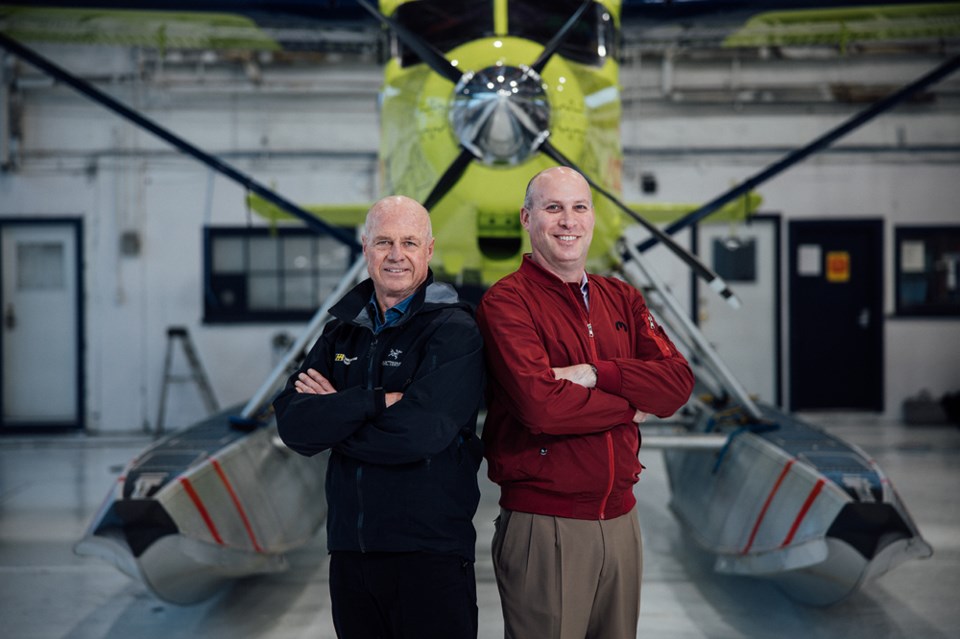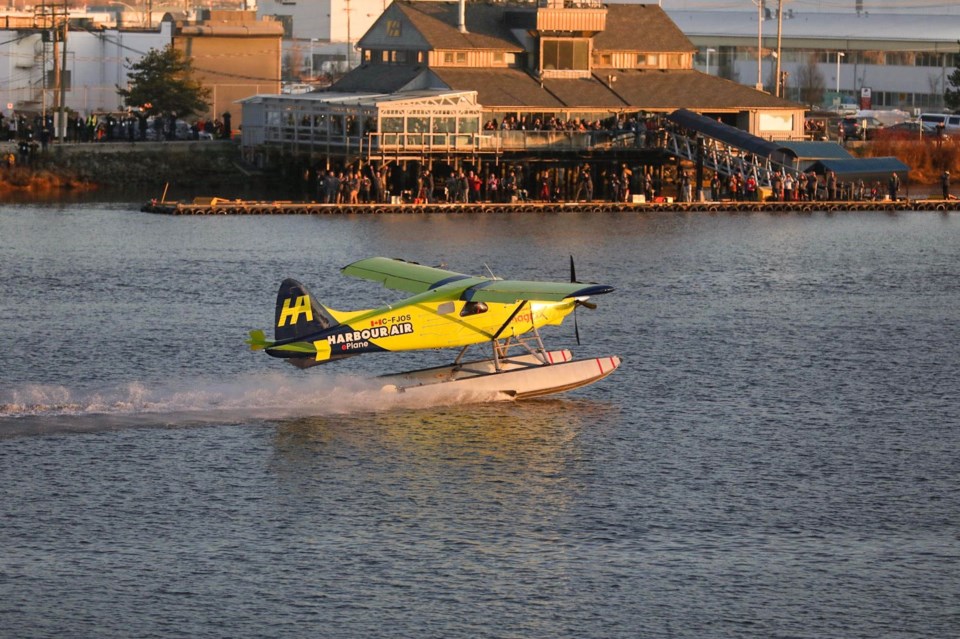They had just dropped off Meghan Markle, the Duchess of Sussex, he said.
If anyone else in town had said it, it may have been considered a tall tale or braggadocio.
But for Squamish's Greg McDougall, Harbour Air CEO and founder, it was just a tidbit from his day.
One of his fleet of more than 40 aircraft had transported the royal and he was breathing a sigh of relief that the unusually wintery weather hadn't meant the plane had to be rerouted or anything.
Markle is just one of 500,000 passengers Harbour Air moves every year between downtown Vancouver, Victoria, Seattle, Nanaimo, Tofino, Whistler, Richmond, Sechelt, Salt Spring Island, Pitt Meadows, Maple Bay and Comox.
The Chief caught up with McDougall earlier this week for a chat about his life in Squamish, that world-famous ePlane flight and what is next.
What follows is an edited version of that conversation.
Q: What is your history in Squamish?
A: Originally, we were in Whistler and then we moved further north to Pemberton and we had acreage and loved it up there. We were there for about seven years and built a home there. But it was challenging in terms of the logistics, the driving, and it meant I had to have an apartment in Vancouver.
It made sense to move to Squamish. Certainly, the town is desirable to live in and halfway between Vancouver and Whistler. We have been here for about six years and we built our home here about four years ago.
Q: I heard you commute in a Tesla? Some people here have range anxiety about going electric.
A: My wife and I both have Teslas. I have a charger in my house. There is no range anxiety at all because basically, you have [the equivalent] of a tank of gas in terms of the range — 500 kilometres in a Tesla. There really isn't an issue at all. I can drive from home to Vancouver airport, or go downtown and do all my stuff and make it back to Squamish with plenty to spare, no charging in-between. The whole secret is to have a charger at home and then it is ready to go the next morning.
Q: Do you still own the land that the Hop Creek Farms is on, on Government Road?
A: Yes. We originally bought 10 acres next to the Easter Seals' land and then the farm nextdoor, with 22 acres, came up for sale and we bought that. We are running Hop Creek Farms, which is producing farm-to-table sustainably raised protein. We have sheep, pigs, chicken and beef.
[The farm is a family-owned operation in partnership with McDougall's daughter and son in law — Burt and Steph Wright.]
Q: Last year was a standout year, bookended by pretty major accomplishments. Early in February, it was announced that you were being honoured by Canada’s Aviation Hall of Fame for your contribution to Canadian aviation. And Dec. 10, of course, with your partner magniX, you flew the world’s first all-electric commercial aircraft. Did it feel like an unusually awesome year?
A: I guess so? I mean, for me, you put your head down and you do what you have to do. It just kind of all flies by. The Hall of Fame was certainly a great honour. I am not one to like the spotlight much, but that was certainly a big deal.
What I was thinking through all that, though, is that my contribution has yet to be made, which is trying to electrify aviation.

Q: With some time behind that maiden flight in December — and a ton of media coverage of it — how do you reflect on it?
A: It got a tremendous amount of attention worldwide. And it is not that we want attention for attention's sake. We think it is important and within the public interest for people to understand what it is we are doing and of course, the more attention that is paid to it, the easier it is for us to get the process done of getting it certified. The flight itself was fairly routine for me.
I have a lot of time in that type of airplane. [The ePlane is a retrofitted DHC-2 de Havilland Beaver, powered by a 750-horsepower (560 kW) magni500 propulsion system.] When I came into the dock and there were hundreds of people there, it was a big deal. People get it and that is great. That is a validation of what we are doing and that it needs to be done.
But we have to pioneer, and that is always interesting because we are doing something that hasn't been done before. It was great we found a great partner in MagniX.
Watch LIVE as @HarbourAirLtd #ePlane takes flight, magnified by the magni500 electric propulsion system. Join our live stream for this historic event as the first all-electric commercial aircraft ushers in a new era of aviation. https://t.co/8lkydg9JX7
— magniX (@MagniX) December 10, 2019
Q: What are the next steps for the ePlane in terms of the certification and approval process for the propulsion system and the retrofitting of your fleet of aircraft?
A: The problem is that we don't know how long the process will be because we don't know what the challenges will be along the way. We have to prove that the electric system is as safe as what we have currently in a standard piston engine or a normally aspirated engine. Not having this type of propulsion system approved before, you don't know exactly what you are going to have to prove. Two years is a target.
Q: Do you recall when your interest in sustainability started for you?
A: As a company, where we started to focus on environmental issues and sustainability was when we went carbon neutral about 13 years ago. We were the first fully carbon neutral airline in the world. That probably got us thinking about, 'What else can we do?'
When I got my Tesla — I have always been an early adopter of technology, I got one of the first Teslas that came to Vancouver — I thought, if we could put that in an aircraft, that would be pretty amazing. The whole battery technology has been advancing to the point that we could take a look at it and say it will work for us. Then it became a matter of, 'Why wouldn't we do this?"
Q: You are known for not loving the big-city life, so with that in mind, what do you make of all the changes to Squamish the last few years?
A: When I first moved here, I was taken with the fact there were so many spec homes for sale. In the Highlands, there were 12 or so houses around us while the prices were so high in Vancouver. I was thinking "What is it people don't get?" Then it was like somebody flipped a switch and everybody got it. And all the restaurants we used to be able to walk in on a Saturday night had people in them.
I think it is all pretty positive. I hope it doesn't get so crowded it defeats the purpose of being out of the city, but Squamish seems to be coping with the changes OK. We are just happy that we are going to be part of it.
~With files from Patrick Sweeny.




